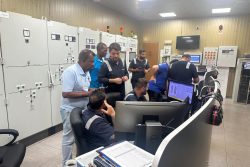This week’s disclosure through a Georgetown Chamber of Commerce and Industry (GCCI) media release that the Business Support Organization (BSO) had signed a Memorandum of Understanding with the University of Guyana (UG) aimed at (as the release put it) “bridging the gap between industry and academia,” marks, seemingly, yet another initiative to establish the kinds of links between the two institutions which ought to have been in place long ago and which, in their scarcity appears to reflect a certain across-the-board indifference on both sides to the importance of a collaborative effort that is important to the country’s development.
Private sector organisations like the GCCI are positioned to create, then strengthen, links between the business community and academia in various ways that need hardly be spelled out here. At the same time the role which UG can play in ‘turning out’ the skills needed to enhance the performance of the private sector is one that has become increasingly apparent, particularly when account is taken of the continually growing collaboration between the global business and academic communities and the mutual benefits that continue to derive therefrom.
One should point out that the recent completion of an MOU between UG and the GCCI does not set a precedent insofar as university/private sector cooperation is concerned. It was not too many moons ago that the idea of UG/private sector collaboration secured a measure of public attention during the tenure of former UG Vice Chancellor, Professor Ivelaw Griffith, We well recalls the plans for the concretisation of that relationship articulated by the then Vice Chancellor during an interview with this newspaper.
In terms of actual work done to cement the relationship, one recalls the creation of the School of Entrepreneurship and Business Innovation (SEBI) at Turkeyen and its stated “core mission… to educate and develop entrepreneurial and innovative leaders and managers with the skills, competencies, predisposition and habits of mind to contribute to the social vitality and economic advancement of the nation and the global community.”
SEBI, as far as we are aware, has turned out programmes through classes that have attracted some small business and entrepreneurial types and there is evidence that some local private-sector businessmen have evinced an interest in causing SEBI to create a local business training curriculum that is responsive to the needs of the private sector. From a macrocosmic perspective, however, there is not a great deal of information about the outcomes of what we assume has been a sustained relationship between UG and the private sector under arrangements that preceded the present one.
That a considerably under-resourced University of Guyana needs various types of support that go beyond the coffers of the state and by the same token that UG can pay its way for that support through skills enhancement initiatives that can benefit the private sector is not a matter in question. What is bothersome, however, is the concern that the recent UG/GCCI Memorandum of Understanding and whatever its promised deliverables are, do not ‘run out of puff,’ so to speak, falling at an early hurdle to be trampled beneath the hooves of other pressing preoccupations on both sides.
Here, one might add that the evident need for a University of Guyana equipped to respond to the whole suite of skills-training needs arising out of the materialisation of an oil and gas sector has to be thrown into the mix since a role for UG in helping to provide training that has implications for ensuring that Guyanese are able to secure high-skill jobs in the oil and gas industry can hardly be overestimated. A particularly important spinoff here would be the significantly enhanced prospects for the creation of more constructive relationships between UG and external academic institutions which, on the whole, can do Guyana nothing but good.
From a private sector perspective the best that can be said is that a structured relationship with UG can go a far way in the direction of affording it an enhanced opportunity to jettison its across-the-board skills deficiencies.
The sticking point here has to do with how to get past the first hurdle of the media-attended signing of MOUs and high-sounding commitments that attend those rituals and after that is done, to demonstrate a real desire to stay the course set out in the documented commitments. The first challenge associated with the latest undertaking is with ensuring that the objectives of continuity and forward movement do not fall at the first hurdle.
One might add, of course, that in the seeming absence, up until now, of any mechanism that focusses the attention of government on the importance of seriously actualising the nexus between upgrading the delivery capabilities of UG and fulfilling the across-the-board skills needs of the country that are linked to our developmental ambitions deriving from our oil and gas ‘fortune’, we are, one feels, on a hiding to nowhere.





